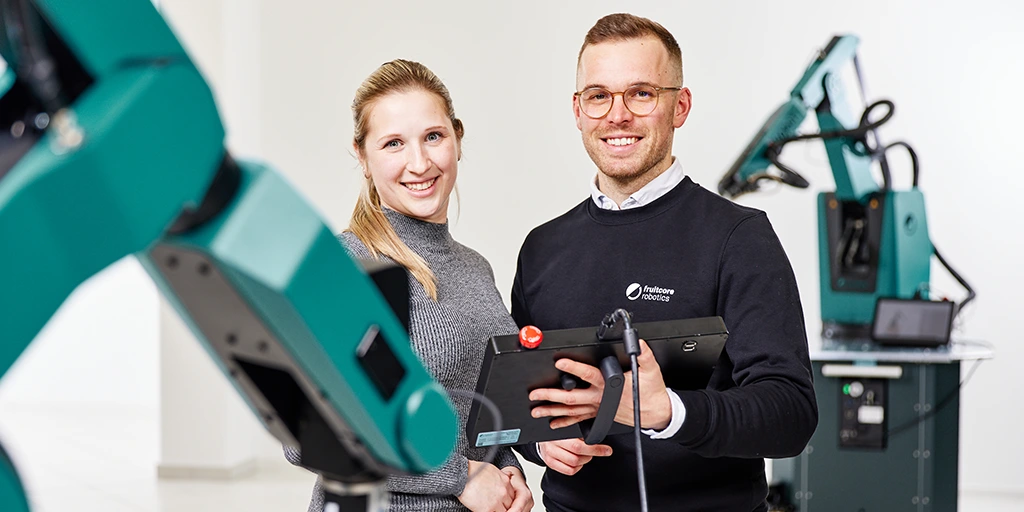2 min read
In which areas do people intend to work with industrial robots?
 Markus Mayr
:
Feb 24, 2023 2:29:00 PM
Markus Mayr
:
Feb 24, 2023 2:29:00 PM

The industry expects to invest 25% of its capital in robotics and automation over the next five years, especially for routine tasks. A recent survey of the German population shows that robots are desired for warehouse, logistics and production tasks.
Companies plan to spend 25 percent of their budgets on robotics and automation
Over the next five years, companies will make a quarter of their investments in robotics and automation. This is the assumption of several dozen leaders from global industry, according to a recent study by the consulting firm McKinsey. In the automotive industry and in the logistics & fulfillment sector, the share is even expected to rise to more than 30 percent in each case.
The respondents see the highest potential for industrial robots in routine activities that are already frequently automated (e.g. pick-and-place, packaging and palletizing or sorting). In contrast, more complex activities are seen as having less chance of automation in the short to medium term (e.g. welding and soldering, punching or surface treatments). This is due to the fact that they require a high level of human involvement.
According to McKinsey, the main improvements achieved with industrial robots relate to cycle time, safety, quality and output capacity. The introduction of automation, on the other hand, could be hindered by a lack of knowledge about the implementation of robots or by costs becoming too high. Aa considerable proportion of the executives surveyed also state that they do not yet see themselves as technologically ready for automated work.
People in Germany expect many robots at work
The responses from the global industry align with the sentiments of people in Germany, as indicated by a recent survey conducted by YouGov. The opinion research institute, on behalf of fruitcore robotics, conducted a survey in late January 2023 among approximately 2000 adults to understand in which professions and for which tasks they can envision robots.
At the top of the list are fields such as warehousing, logistics, transportation, and production. In contrast, respondents in social professions (e.g., education, kindergarten, hospital, and elderly care) rarely find it "acceptable" to work with robots. There is even greater apprehension in the areas of police, military, or private security.
The representative YouGov results also align with the McKinsey study regarding tasks that people are willing to let robots take on: loading and unloading machines, packing and unpacking, and sorting and organizing were each mentioned by about half of the respondents. Two-thirds of the German population expect to see many more robots in the workplace within the next five years.
